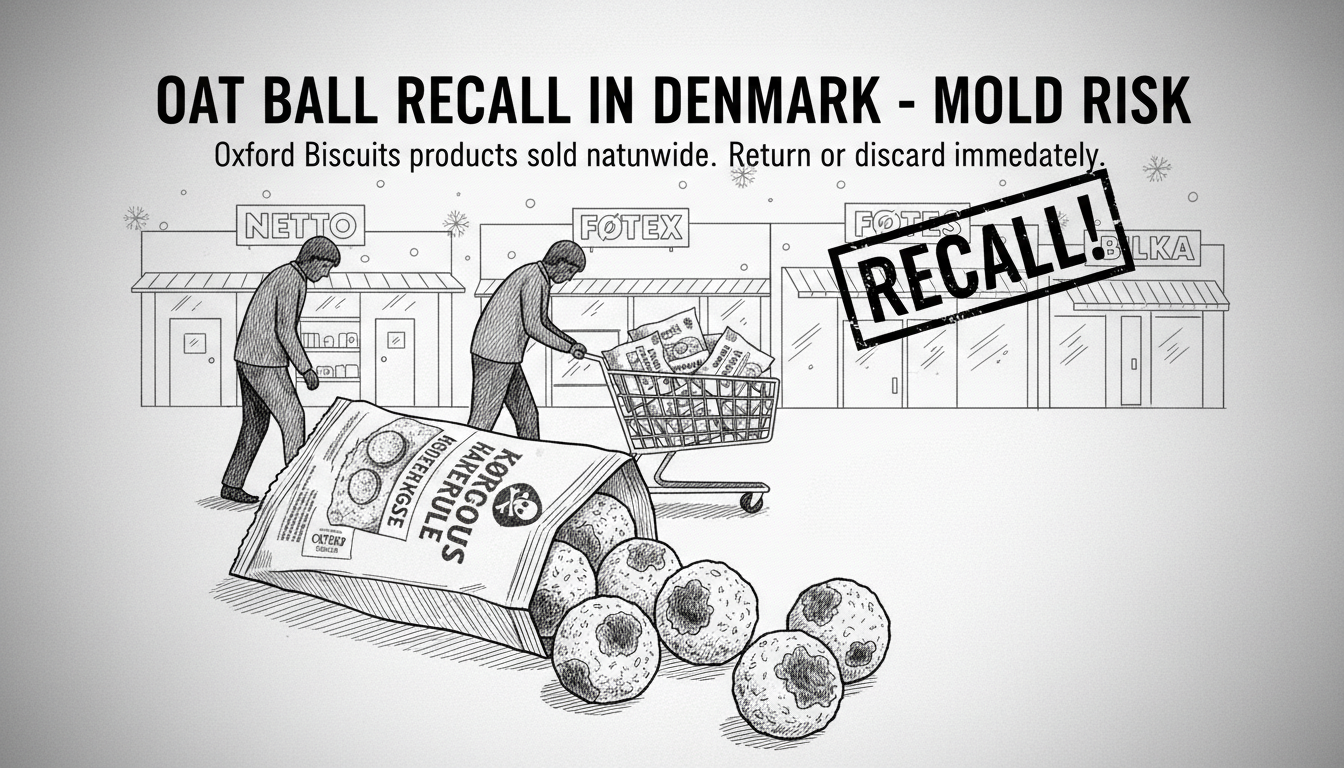Danish food company Oxford Biscuits has issued a nationwide recall of Curré coconut oat balls due to potential mold contamination. The company announced the product recall through an official statement, warning consumers that the mold makes the food items unsuitable for consumption.
The affected oat balls were sold across Denmark in major supermarket chains including Netto, Føtex, and Bilka. Customers who purchased these products should immediately discard them or return them to the store where they were bought. Stores will accept returns without requiring a receipt, according to the company's announcement.
The specific product involved is Curré coconut oat balls in 250-gram packages with the barcode number 5712875442339. These products have best-before dates of December 20 and December 27. Danish food safety authorities note that moldy foods can contain harmful fungi that produce mycotoxins, which are known carcinogens.
This recall highlights ongoing challenges in food safety monitoring within Denmark's generally reliable food supply system. The Danish Veterinary and Food Administration maintains strict controls, but occasional contamination incidents still occur. Mold contamination typically happens during production, storage, or transportation when moisture levels are improperly controlled.
For international readers, Denmark's food recall system operates with high efficiency compared to many other countries. The country's centralized distribution networks allow for rapid notification and removal of potentially hazardous products from store shelves. Danish consumers have come to expect immediate action when food safety concerns arise.
What should consumers do if they purchased these products? They should immediately stop consumption and either dispose of the oat balls or return them to any store in the mentioned chains. While no illnesses have been reported yet, the potential health risks make precaution necessary. The company will likely face financial losses and reputational damage from this incident.
Food safety experts note that such recalls, while concerning, demonstrate that Denmark's monitoring systems work effectively. The quick identification and public notification show proper functioning of food safety protocols. Still, consumers rightly expect that basic quality control should prevent such contamination from reaching store shelves in the first place.

